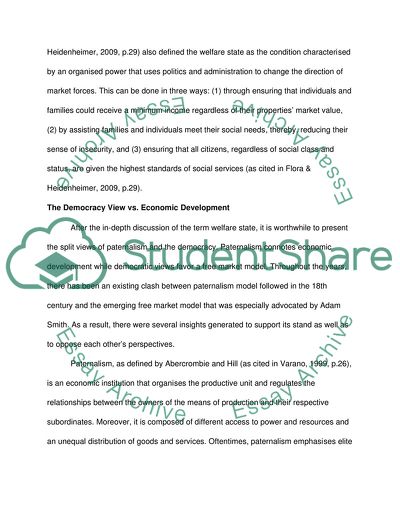Cite this document
(Economic Development More Important than Democracy in Promoting a Welfare State Literature review Example | Topics and Well Written Essays - 2000 words, n.d.)
Economic Development More Important than Democracy in Promoting a Welfare State Literature review Example | Topics and Well Written Essays - 2000 words. https://studentshare.org/social-science/1764691-economic-development-has-been-more-important-than-democracy-in-creating-the-conditions-for-the-welfare-state-to-develop-discuss
Economic Development More Important than Democracy in Promoting a Welfare State Literature review Example | Topics and Well Written Essays - 2000 words. https://studentshare.org/social-science/1764691-economic-development-has-been-more-important-than-democracy-in-creating-the-conditions-for-the-welfare-state-to-develop-discuss
(Economic Development More Important Than Democracy in Promoting a Welfare State Literature Review Example | Topics and Well Written Essays - 2000 Words)
Economic Development More Important Than Democracy in Promoting a Welfare State Literature Review Example | Topics and Well Written Essays - 2000 Words. https://studentshare.org/social-science/1764691-economic-development-has-been-more-important-than-democracy-in-creating-the-conditions-for-the-welfare-state-to-develop-discuss.
Economic Development More Important Than Democracy in Promoting a Welfare State Literature Review Example | Topics and Well Written Essays - 2000 Words. https://studentshare.org/social-science/1764691-economic-development-has-been-more-important-than-democracy-in-creating-the-conditions-for-the-welfare-state-to-develop-discuss.
“Economic Development More Important Than Democracy in Promoting a Welfare State Literature Review Example | Topics and Well Written Essays - 2000 Words”. https://studentshare.org/social-science/1764691-economic-development-has-been-more-important-than-democracy-in-creating-the-conditions-for-the-welfare-state-to-develop-discuss.


